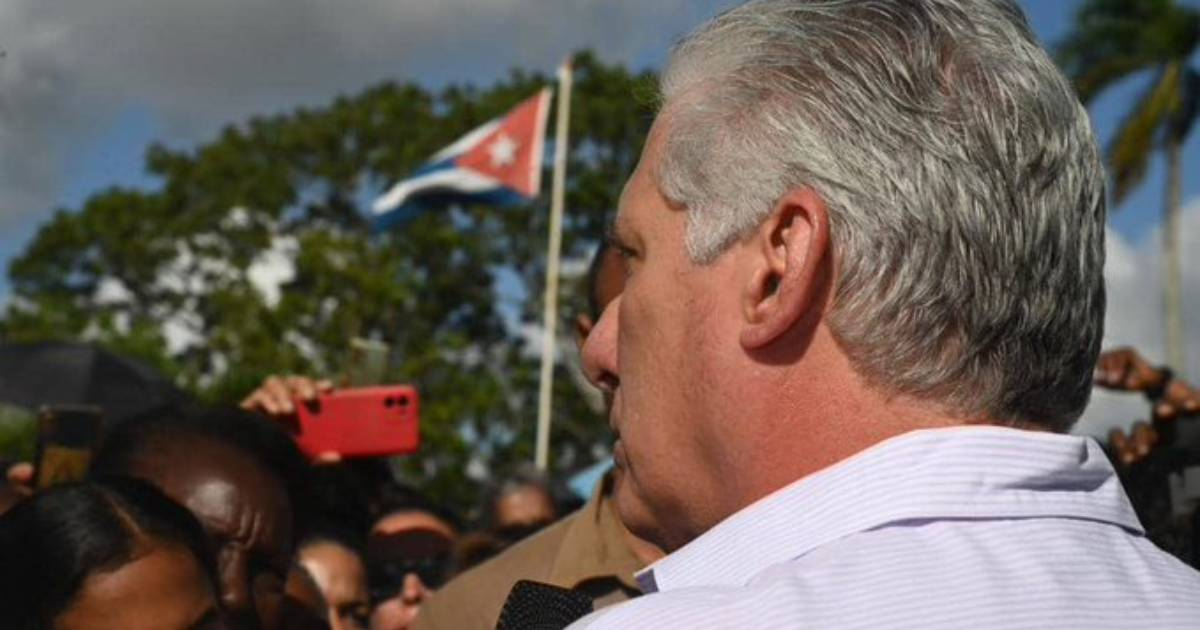
In a recent dialogue with the people of Lajas, Cuban leader Miguel Díaz-Canel broke his silence on the outcome of the presidential elections in the United States, stating that he was willing to engage in dialogue with elected President Donald Trump.
During his speech, Díaz-Canel stated that the election results were not surprising for the Cuban government.
"It was a scenario that was anticipated," he stated, referring to the possible repercussions for Cuba, which faced severe sanctions during the previous Republican administration.
In a thread on X, formerly Twitter, it was stated that Cuba is willing to engage in dialogue with the Trump administration, but always within a framework of respect and without impositions.
"We have always stated that we have nothing against the American people and that we are willing to engage in dialogue on equal terms with the government of the United States, without impositions, with respect, and without anything that affects our sovereignty and independence," said Díaz-Canel.
During his first term, Trump pushed for a significant tightening of sanctions against the island, which included over 240 measures aimed at pressuring for a change in the political model.
Cuban-American Congressman Mario Díaz-Balart anticipated a tightening of Trump's policies toward Cuba and Venezuela a few weeks ago in an interview with journalist Mario J. Pentón.
According to Díaz-Balart, the new Republican administration will implement stricter measures against both regimes, with a particular focus on U.S. national security and immigration policy.
Díaz-Balart, who has been a consistent critic of the Cuban regime, warned that during Trump's second term, a "dramatic change" in the relationship between the United States and Cuba will be implemented.
The congressman emphasized that the Trump administration will not allow the island's regime to use resources to "harm the United States" or to continue "oppressing its own people."
Furthermore, he anticipated that the Trump administration would take direct action against those who violate U.S. immigration laws, including the deportation of individuals linked to repressive regimes such as that of Cuba.
Finally, Díaz-Balart delivered a strong message to the detractors of the United States, stating that those who feel uneasy about Trump's policies have reason to do so. "This administration will enforce the law and will not allow further violations of immigration regulations," he asserted.
Frequently Asked Questions about Cuba-United States Relations Following Trump's Victory
What is Miguel Díaz-Canel's opinion on Donald Trump's victory in the United States elections?
Miguel Díaz-Canel stated that the outcome of the elections was not surprising for the Cuban government. He noted that the scenario was anticipated and expressed readiness to engage in dialogue with Trump, always within a framework of respect and without any impositions that would affect Cuban sovereignty.
What are the expectations of the Trump administration regarding Cuba?
Cuban-American Congressman Mario Díaz-Balart indicated that the Trump administration will intensify policies toward Cuba, implementing a "dramatic shift" in relations. It will focus on national security and immigration policy, ensuring that the Cuban regime cannot use resources to harm the United States or continue oppressing its people.
How has Díaz-Canel responded to Mario Díaz-Balart's statements about Cuba?
Although there is no direct response from Díaz-Canel to Díaz-Balart in the news, the Cuban government has expressed its willingness to engage in dialogue with the United States, provided that its conditions of equality and sovereignty are respected. The Cuban regime has criticized the sanctions and blockade imposed by the United States.
What measures could Trump take against Cuba and Venezuela according to Díaz-Balart?
Díaz-Balart mentioned that Trump will implement stricter measures against the regimes of Cuba and Venezuela, with a special focus on the national security of the United States. These measures could include the deportation of individuals linked to repressive regimes and an increase in pressure on both countries.
What position has Díaz-Canel taken regarding the United States' policy toward Cuba?
Díaz-Canel has maintained a critical stance toward U.S. policies, especially the economic embargo, which he blames for many internal issues in Cuba. He has rejected U.S. aid following recent disasters, insisting that the real problem is the economic blockade.
Filed under: